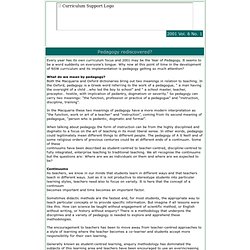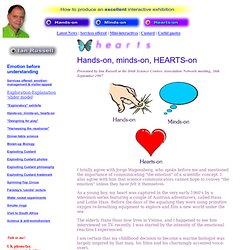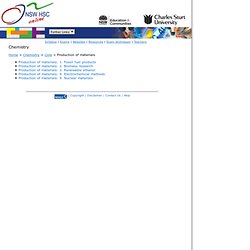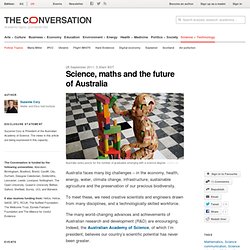

Tv home.
Nsw syllabi. Learning,%20Arts%20and%20the%20Brain_ArtsAndCognition_Compl. LOUGJ97039. From the President... Welcome to the website of the Australian Association for Research in Education. AARE is a large, national, member-run organisation for educational researchers and educators, and our association plays a critical role in supporting and strengthening major research partnerships and networks for the Australian educational research community. More... AARE-NZARE Joint Conference 2014 The website for the joint AARE-NZARE Conference, to be held in Brisbane from the 30th of November 2014, is now live. We look forward to seeing you in Brisbane in 2014. 2013 Conference Papers now Available Details of all papers presented at the 2013 conference have now been entered into the conference paper archive.
Click the link to the left to access and search the database. AER Open Access 'Highlight Articles' A selection of six articles from the Australian Educational Researcher has been made available free of charge for a limited time. New Grant Funding for SIGs Read our Blog.
Pedagogy rediscovered? Every year has its own curriculum focus and 2001 may be the Year of Pedagogy.

It seems to be a word suddenly on everyone’s tongue. Radical Pedagogy as Praxis. School of Outdoor Recreation, Parks & Tourism Lakehead University mary.breunig@lakeheadu.ca mary.breunig@lakeheadu.ca In this paper, I heed the advice of hooks (1994) and Freire & Shor (1987) that there is value in the talking out of ideas. This paper is written in the form of a conversation between two parts of my divided self: me as radical pedagogue (RP) and me as traditional educator (TE). The purpose of this conversation is to examine some of the incongruence between what I teach and believe and my own pedagogical practice. It was the end of the semester in my fourth year experiential education course. This question came as a direct response to a class discussion we were having about an article on the value of the student-directed classroom. Darwin, Descartes and Dewey: The Biological Basis for a Problem-Based Learning Curriculum. Philadelphia University School House Lane & Henry Avenue Philadelphia, PA pritchardr@philau.edu Dr.
Pritchard is an assistant professor in the master’s degree program in Instructional Design & Technology at Philadelphia University. Digital instructional technologies are frequently selected by educators without first deciding what the goals of education (or training) are, what teaching methods will best achieve these goals, or how various digital instructional technologies will support or enhance these goals. In this paper I will make the case that educators must first decide what the goals of education are, what instructional methods will best serve these goals, and only then should they select digital instructional technologies that help their students achieve their educational goals.
Philosophy of Education Links. Moodle - A Free, Open Source Course Management System for Online Learning.
Ian Russell - Interactive Science Ltd. Hands-on, minds-on, HEARTS-on Presented by Ian Russell at the Irish Science Centres Association Network meeting, 26th September 1997 I totally agree with Jorge Wagensberg, who spoke before me and mentioned the importance of communicating "the emotion" of a scientific concept.

I also agree with him that science communicators cannot hope to convey "the emotion" unless they have felt it themselves. As a young boy, my heart was captured in the very early 1960's by a television series featuring a couple of Austrian adventurers, called Hans and Lottie Hass. Before the days of the aqualung they were using primitive oxygen re-breathing equipment to explore and film a new world under the sea.
The elderly Hans Hass now lives in Vienna, and I happened to see him interviewed on TV recently. I am certain that my childhood decision to become a marine biologist was largely inspired by that man, his films and his charmingly accented voice-overs. "Hands-on" is a good thing, everybody agrees about that now. Distance & Rural Technologies. KCPC Education Resource Web Site: Syllabus Outline. Productive pedagogy. What if the Secret to Success Is Failure? HSC Online. Syllabus | Exams | Websites | Resources | Exam techniques | Teachers Chemistry Home > Chemistry > Core > Production of materials.

Science, maths and the future of Australia. Australia faces many big challenges – in the economy, health, energy, water, climate change, infrastructure, sustainable agriculture and the preservation of our precious biodiversity.

To meet these, we need creative scientists and engineers drawn from many disciplines, and a technologically-skilled workforce. The many world-changing advances and achievements of Australian research and development (R&D) are encouraging. Indeed, the Australian Academy of Science, of which I’m president, believes our country’s scientific potential has never been greater. But our ability to improve this performance in the future, or even maintain it, is not assured. Four things threaten our ongoing R&D performance and, as a consequence, our economic security and prosperity, and I’ll address each of these in turn. 1) The level of investment in R&D Over the past decade, successive Australian governments have recognised the need to properly invest in research and innovation.
These are sobering statistics.